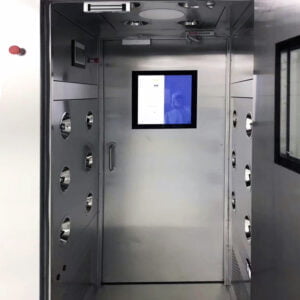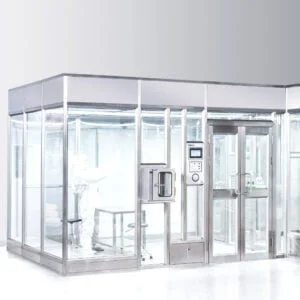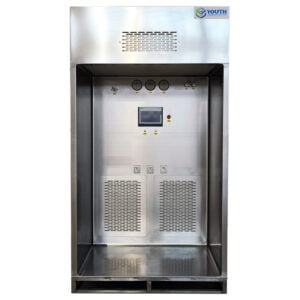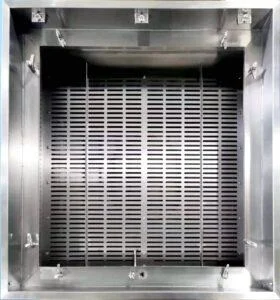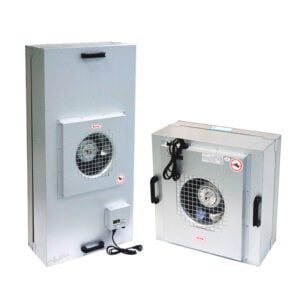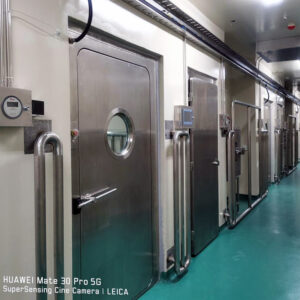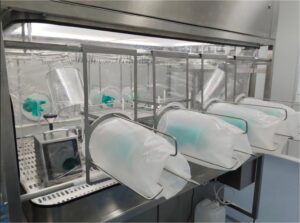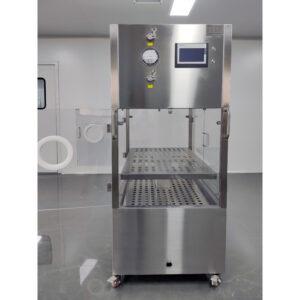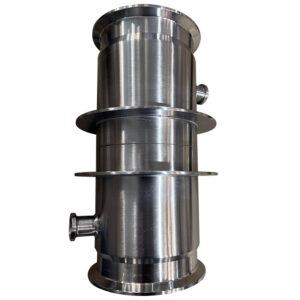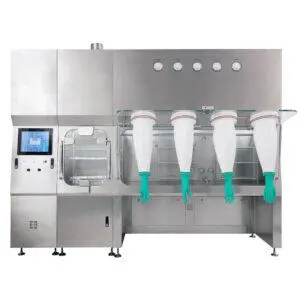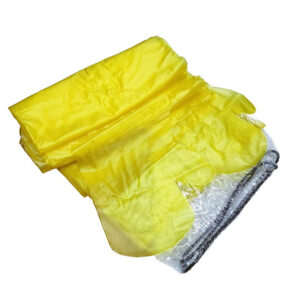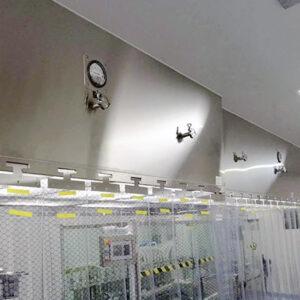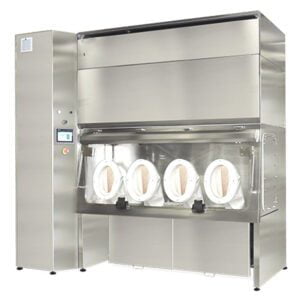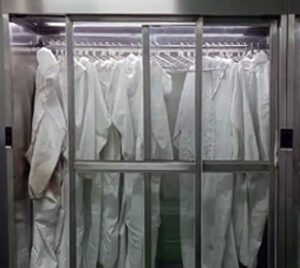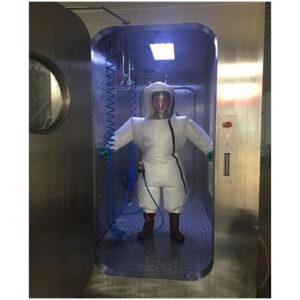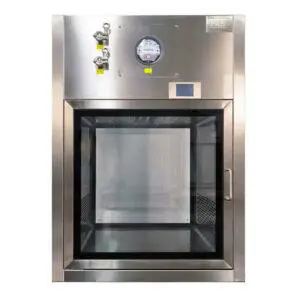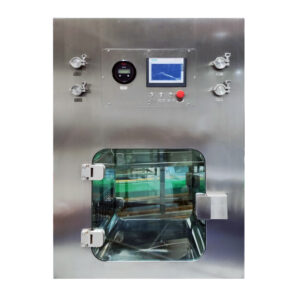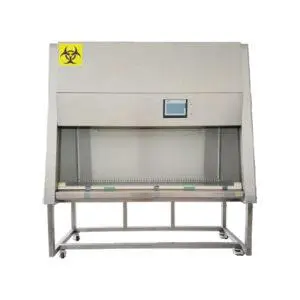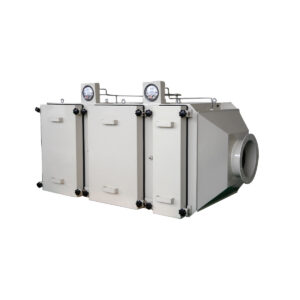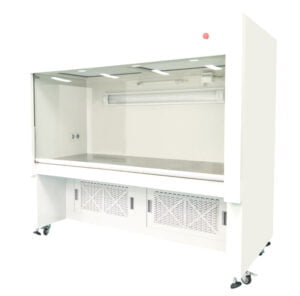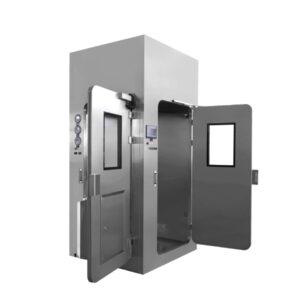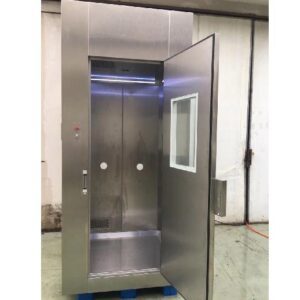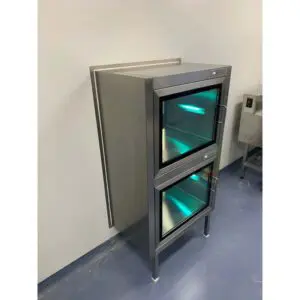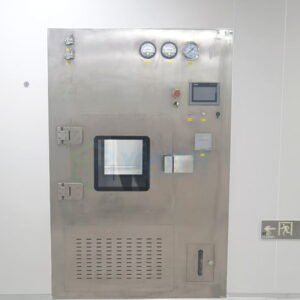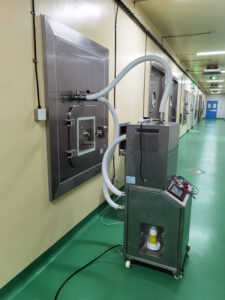In today’s fast-paced technological landscape, future-proofing cleanrooms has become more critical than ever. High-efficiency Fan Filter Units (FFUs) play a pivotal role in maintaining stringent air quality standards, ensuring that cleanrooms can evolve and adapt to future industry demands. At YOUTH, we specialize in manufacturing state-of-the-art cleanroom equipment, including advanced FFUs. Explore our comprehensive product range at youthfilter.com.
The Vital Role of Fan Filter Units in Cleanrooms
Fan Filter Units are essential devices used to purify the air in cleanroom environments. Typically installed on the ceiling, FFUs maintain laminar airflow, which effectively removes harmful particles. Here’s how FFUs work in a cleanroom setting:
- Air Intake: The FFU draws in air from the cleanroom or from outside.
- Pre-Filtering: The pre-filter captures larger particles, protecting and extending the life of the main HEPA/ULPA filter.
- Main Filtration: The air then passes through a HEPA (High-Efficiency Particulate Air) or ULPA (Ultra-Low Penetration Air) filter, which captures very fine particles and microorganisms, ensuring a high level of air purity.
- Air Distribution: Finally, the clean, filtered air is distributed evenly back into the cleanroom, maintaining the integrity of the controlled environment.
Why Future-Proofing Your Cleanroom is Essential
Future-proofing your cleanroom involves implementing technologies and practices that ensure long-term efficiency, compliance, and adaptability. Here’s why it’s essential:
- Technological Advancements: As industries evolve, new technologies will emerge, necessitating cleanroom environments that can adapt to changing requirements.
- Regulatory Changes: Future regulatory standards may become more stringent, requiring enhanced air purification capabilities.
- Operational Efficiency: Future-proofing ensures that cleanrooms operate efficiently, minimizing downtime and reducing operational costs.
- Sustainability: Implementing sustainable practices and technologies helps reduce environmental impact and aligns with future green regulations.
Benefits of Advanced FFUs in Future-Proofing Cleanrooms
Using advanced FFUs in cleanrooms offers several key benefits that align with future-proofing strategies:
- Superior Air Purity: With HEPA and ULPA filters capturing up to 99.997% of particles, advanced FFUs ensure exceptionally clean air, which is vital for maintaining the integrity of cleanroom environments.
- Real-Time Monitoring: Advanced FFUs equipped with smart sensors and IoT capabilities provide real-time monitoring and control, ensuring optimal performance and compliance with future standards.
- Energy Efficiency: Innovations in motor design and control systems make advanced FFUs more energy-efficient, reducing operational costs while maintaining high performance.
- Noise Reduction: Enhanced designs focus on reducing operational noise, creating a more comfortable and productive working environment.
- Modularity and Scalability: Modern FFUs are designed to be modular and scalable, allowing for easy upgrades and adaptations to new processes or increasing cleanroom demands.
YOUTH’s Cutting-Edge Cleanroom Solutions
At YOUTH, we are committed to providing advanced cleanroom solutions that support the highest standards of air quality and future-proofing. Here are some of our high-efficiency products:
- Fan Filter Units (FFU): Learn more
- Bag-in-Bag-out BIBO System: Learn more
- LAF Units: Learn more
- Air Showers: Learn more
- Weighing Booths: Learn more
- Pass Boxes: Learn more
- Mist Showers: Learn more
- Sterile Liquid Transfer Port (SLTP): Learn more
- Dynamic Pass Box: Learn more
- VHP Pass Box: Learn more
- High-Temperature HEPA Air Filter: Learn more
- Gel Seal HEPA/ULPA Air Filter: Learn more
- Modular Cleanrooms: Learn more
- Cleanroom Wall & Ceiling Panels: Learn more
- Cleanroom Tables & Benches: Learn more
- Cleanroom Furnishings: Learn more
Applications Across Various Industries
Advanced FFUs are indispensable in future-proofing cleanrooms across multiple industries:
- Pharmaceutical Industry: Ensuring sterile conditions for drug production and adapting to evolving regulations.
- Biotechnology: Maintaining a contamination-free environment critical for innovative research and development.
- Electronics and Semiconductors: Preventing contamination of delicate electronic components while adapting to new technologies.
- Aerospace: Providing a controlled environment for the manufacture of high-precision components.
- Medical Device Manufacturing: Guaranteeing the safety and effectiveness of medical devices while anticipating future standards.
- Food and Beverage Industry: Preventing contamination during production and packaging.
- Optics and Photonics: Ensuring the quality of optical components.
- Nanotechnology: Protecting processes from nanoscale contaminants.
- Healthcare and Hospitals: Maintaining sterile environments for patient safety.
- Automotive Industry: Ensuring the quality of high-precision automotive components and adapting to technological advancements.
Conclusion
Future-proofing cleanrooms with advanced Fan Filter Units is essential for maintaining stringent air quality standards and adapting to evolving industry demands. At YOUTH, we are dedicated to providing state-of-the-art cleanroom solutions that support the highest standards of air purity and operational efficiency. Visit youthfilter.com to explore our comprehensive range of products and discover how we can help you achieve and maintain optimal cleanroom performance.
Related Contents:
- Mastering Clean Room Technology with Fan Filter Units (FFUs)
- How to choose FFUs and AHUs?
- Bag-In/Bag-Out (BIBO) Systems: Operation and Maintenance Guide
- Exploring the Versatility of Fan Filter Units Across Different Sectors
- Maintaining Cleanroom Standards with High-Efficiency Fan Filter Units
- How Fan Filter Units Aid in Compliance with Industry Regulations
- Understanding the Mechanics of Fan Filter Units: A Detailed Guide
- Fan Filter Units for Semiconductor Cleanrooms: A Must-Have Solution
- Fan Filter Units: Balancing Efficiency and Cost-Effectiveness


